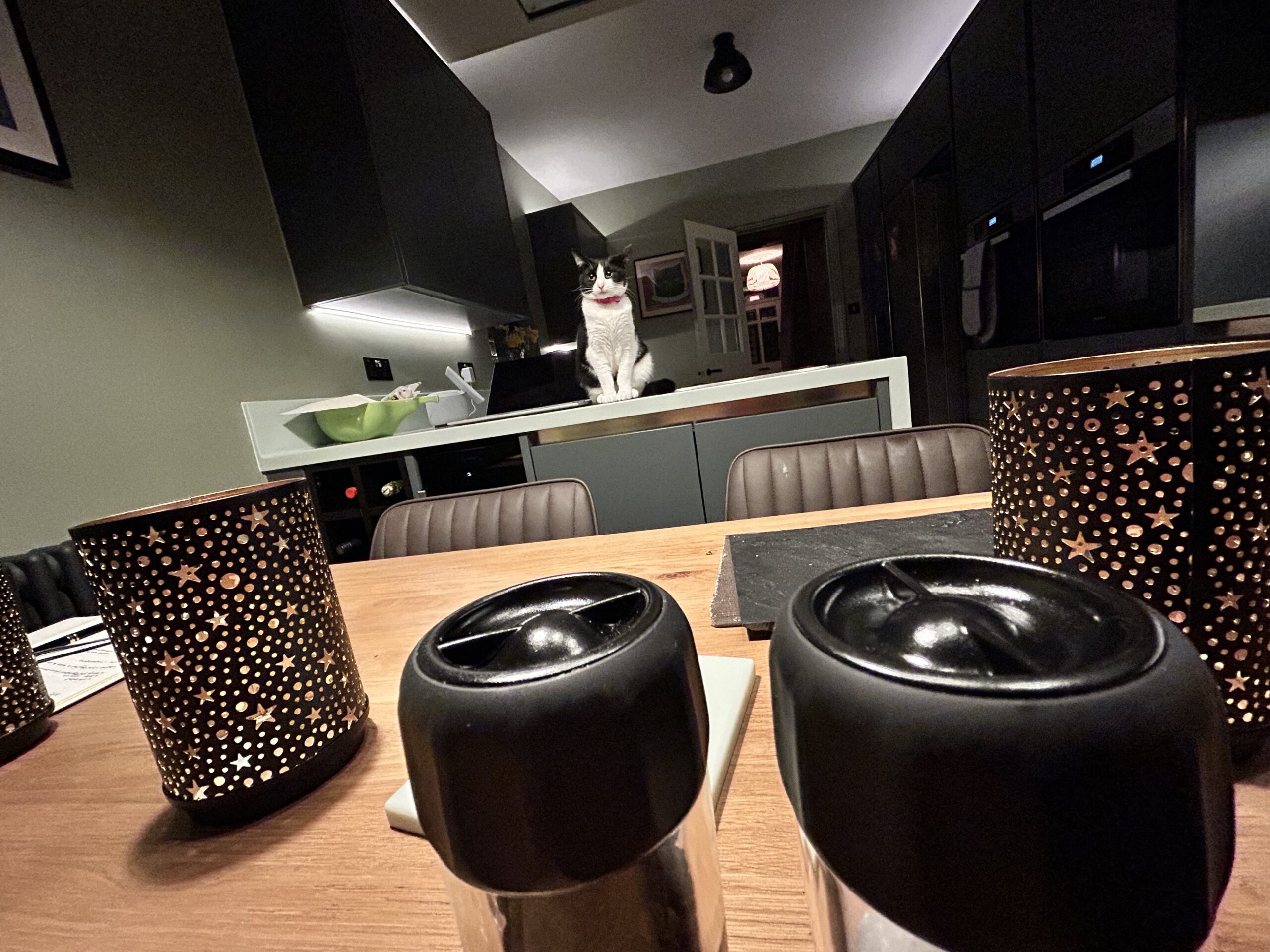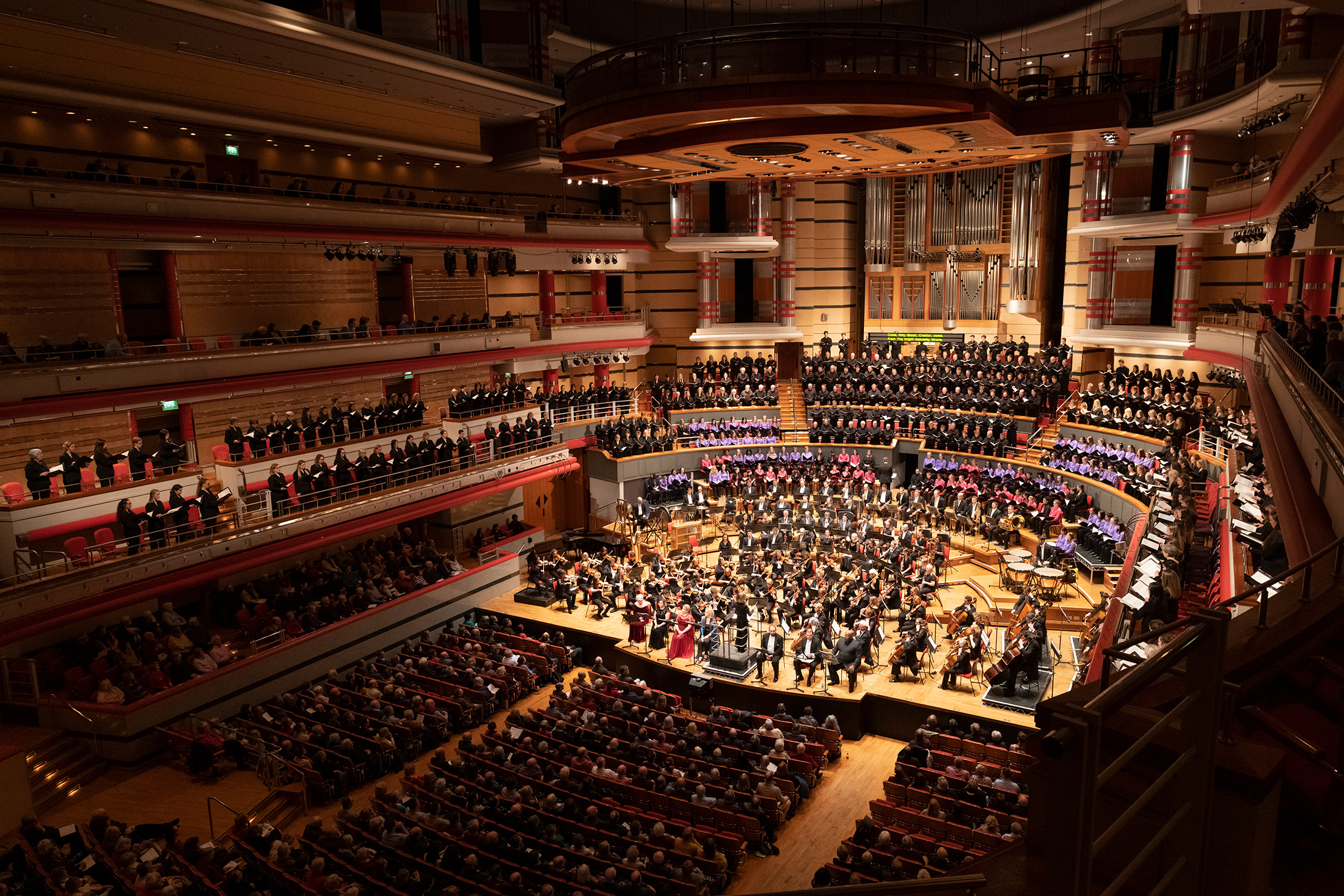Last night a moment of bliss.
We’re sat at the dining table. We’re downlit. We feel like grownups in a posh kitchen relaxing at the end of a busy day. We’ve just eaten peanut butter chicken from the night before, reworked into a Shrove Tuesday-themed dish consisting of pancakes. All of its made without a trace of dairy butter. I’m feeling both smug and relieved and I’m on my way to a healthier me. I can feel the cholesterol level dropping in my bloodstream.
On the radio – Amazon’s Echo Show 10 comes with a stereo speaker built-in – Mozart’s Piano Concerto No. 23 in A. Angela Hewitt and the BBC Philharmonic from Bridgwater Hall in Manchester. “Is it live?” asks Simon, “Hang on. I’ll check. Easy to find out.” He checks the listings online.
It turns out it’s not live but recorded as live. No matter. There is by this point a feeling of it being an occasion. We finish our meal as the first theme in the first movement returns. Simon gets up and packs the dishwasher uncharacteristically quietly. I sit still listening. If I cook he clears up my mess. That’s the arrangement. I love cooking.
When the second movement starts the mood in the kitchen changes. Things become quieter. The tone has changed. It’s delicate. Fragile. As the melody soars accompanied by most of the orchestra, I listen out for ‘that chord’ – the O Come All Ye Faithful moment. “There it is. Right there! It’s like a bruise. Or a boat with its fenders brushing up against a wall or a jetty.” Simon laughs. It’s always reassuring when I detect a clunky analogy works.
In the brief conversation that follows, we discuss our response to the qualities of the melody. Simon says he hears beauty on account of the way the melody and its accompaniment are crafted. Of this, there is no doubt. This familiar often-repeated piece of music still has an element of newness to it. It is one of those works where getting to know the piece inside out doesn’t lessen the enjoyment of it. Each subsequent listen reveals something else.
“I hear pain,” I say. “Loss. Loneliness. Tragedy.” I don’t know where these words have come from in the moment. They’re instinctive responses. Simon disagrees. He says it’s beautiful and that he finds it uplifting. “It’s a melody that makes me want to grab my teddy bear and a duvet and wrap myself up in it,” I say. “Protect myself from the world.” “I just don’t have that response to it,” he says in response.
“This is the uplifting movement,” I shout out when the third movement kicks in. “It’s obvious. Its fast-moving. Perky. Sprightly.” Memories abound of the Britten-Pears Orchestra performance at the Chinese Embassy off Portland Place back in ‘95 where the pianist struggled to keep the grand piano within reach on account of the lack of brakes on the instruments and the polished parquet floor. Simon looks aghast. “It was a tense performance,” I explain. “And the orchestra had to set out the audience chairs too. It was all quite last minute.”
These special moments – when we respond to what we hear in the moment – are what mean the most. I find the difference in perspective both fascinating and exhilarating. We are both connected as we listen to an almost live performance. We’re not talking about harmonic development, structure, the style of the Hewitt’s playing or the orchestra. Neither of us is drawing on subject matter experience, only drawing on self-awareness. We’re connecting over our response to music. A prized exchange that enhances the moment.



